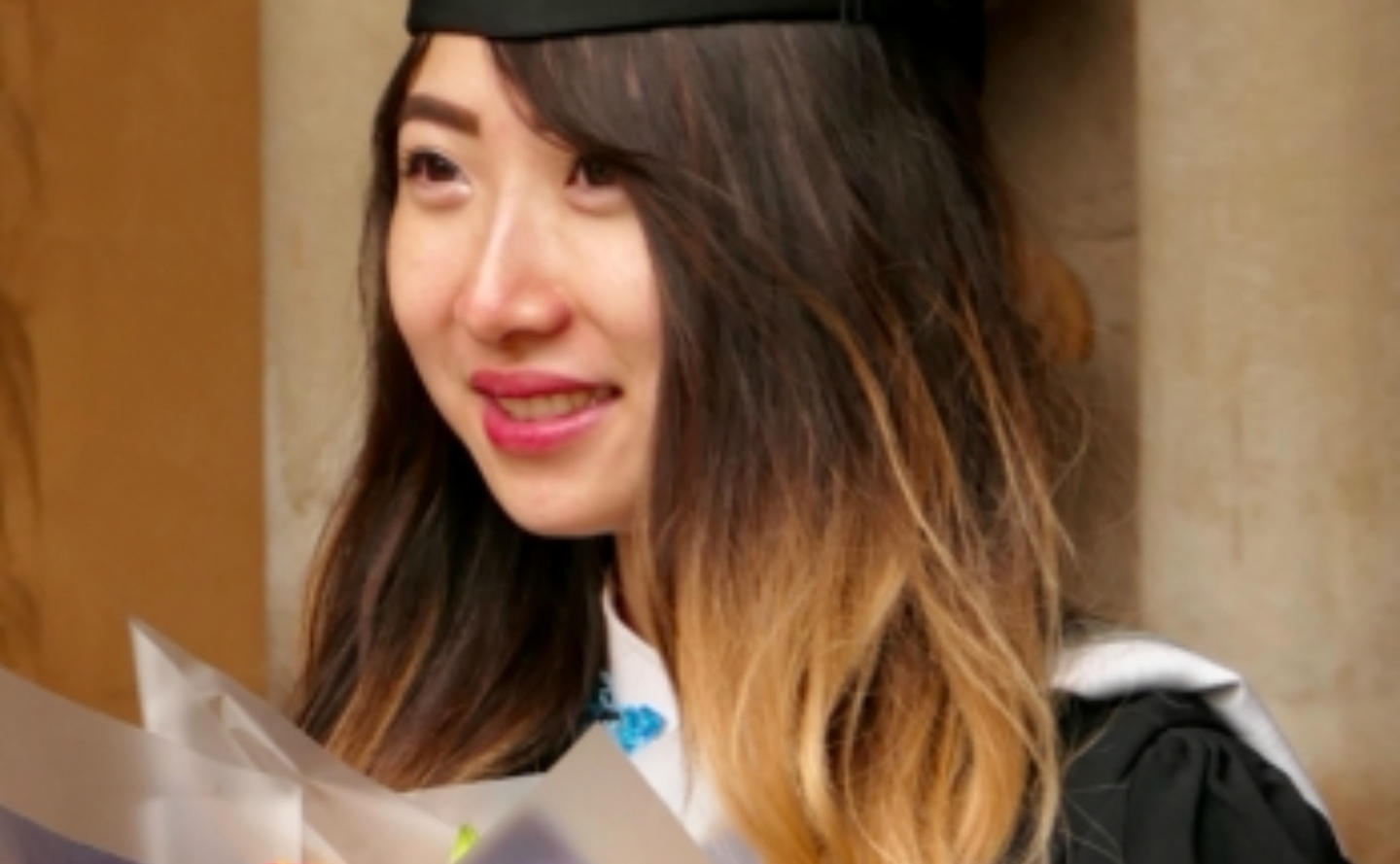Sign up for updates
Interested in studying at the University of Hertfordshire and want to sign up to our mailing list to learn more about our facilities, living in the UK and student life? Use the form below and our team will also keep you informed of key updates such as events near you, applications opening and more!
BA (Hons) History and Philosophy
Key information
-
Typical offer:
Entry requirements -
Fees: See below
Full details -
UCAS code: V1VP
-
Institute code: H36
-
Study abroad option
-
Work placement option
Find out more
Why choose this course?
- Focus on your interests - All History modules optional after 1st year
- Host of the annual Sir Francis Bacon lectures
- Your Philosophy lecturers are all active researchers
We give you:
- An exceptional History team, conducting world-leading research (REF 2014), and a Philosophy team ranked in the 100 best Philosophy departments worldwide (2017 QS rankings).
- Stimulating, innovative courses - History students reported almost 94% overall satisfaction with their course (2018 National Student Survey)
- A flexible programme of study, allowing you to concentrate on areas you find especially interesting and the scope to write a dissertation on a topic about which you are passionate
- The opportunity to expand your horizons by studying abroad at the end of your second year
- CV-building potential through work placements and extra-curricular activities
- History was ranked in the top 25% of UK universities for research impact. (Research Excellence Framework, 2021).
What's the course about?
Our BA History and Philosophy gives you the opportunity to study two subjects that will help you to make sense of the world around you.
Through our diverse and inclusive History curriculum you will learn about an array of cultures and identities. What links our work is our focus on people’s history and everyday lives. This is represented strongly in our first year programme, which will give you an insight into the making of the modern world through exploration of beliefs, magic and medicine, campaigns for freedom and equality, Africa and the world, and America from Hamilton to Trump.
All our lecturers are active researchers, so you’ll share the excitement of doing original work in a supportive and highly-rated academic community.
In your philosophy modules, you will be introduced to a variety of philosophical issues ranging from the nature of reality, knowledge and mind, to questions about how we should live, what we should value, and what would be the best way of organizing society.
Throughout your degree, the common link between the two disciplines will be the development of analytical skills. As historians you will learn to analyse historical documents and debates among historians, while in Philosophy you’ll assess the arguments of others, arriving at your own conclusions on deep, important issues.
These analytical skills, honed over the course of your studies, will benefit you in the final year, if you choose to write a dissertation. This extended piece of work, available either in History or in Philosophy, will grow out of a topic that interests you. Previous students have been inspired by their year of study abroad. Others have worked on the history of jitsu, women code breakers at Bletchley Park, the Notting Hill riots, and vice and sexuality in 17th-century London. And Philosophy students have worked on the ethical issues of playing video games, the nature of the imagination, and environmental philosophy and the obligations of the state.
Work placement/study abroad option: Between your second and final year, you’ll have the option to study abroad or do a work placement for up to a year. Not only will this give you an amazing experience to talk about but will also give your CV a boost. If you’d rather go straight to your final year, that’s absolutely fine too.
Your main campus is College Lane
This is where the creative arts, science and health-related subjects are based. This means you’ll share the campus with future nurses, scientists, artists and more. You can use the common rooms to relax with friends, work out in the 24-hour gym or have a drink in our on-campus pub or cafes. We also have restaurants for you to eat in or grab something on the go. Our Learning Resources Centres are open 24/7, which means you can study whenever suits you best. Want to pop over to the other campus? You can take the free shuttle bus or walk there in just 15 minutes.
What will I study?
Our students benefit from being part of a diverse and active academic community. Our interactive seminars and workshops help you find your feet in the academic environment, and establish ways of working confidently, creatively and collaboratively. We see our students as fellow researchers, and we place a great deal of importance on sharing and developing skills.
As one of our students, you will have the opportunity to get involved in activities that will complement your studies. Not only do these enhance your experience, they also make for a more impressive CV. Our renowned staff-student Oral History team has taken students to Australia and produced a BBC Radio 4 documentary, which was commended at the 2018 Royal Historical Society Public History Awards. There is also an active student Philosophy Society.
Check out our student blogs

Student Blogs
Jasmine - Week at a glance
My week at a glance
History lessons are taught between a mixture of lectures and seminars for the first two years (Level four and five). A typical week would consist of one-hour lectures per module followed by a seminar, which could either be immediately after or on a different day. The seminars consist of smaller groups of people where you discuss both the lecture’s information and the assigned reading. These can be debates, presentations, or simple discussions. So, despite only having contact time for four hours per week, there are independent reading and assignments which need to be completed.
I start my week by completing the required reading, making notes of anything I do not understand so that I can ask my lecturer. After completing the weekly reading, I will work on the assignments. Even though they are mostly due at the end of the semester it is a good idea to work on them throughout, so you do not leave them until last minute.
I participated in active students, which is free for all Hertfordshire students. Here I would attend yoga classes, but there is a wide range of fitness and wellbeing events that take place. I also enjoyed badminton, as you could either go alone or with a group of friends. It is also a good idea to join society as it not only boosts your CV, but it is a way to meet likeminded people and develop friendships.
I also had a part-time job which I would do alongside studying. This means that planning is vital as you want to be on top of your workload to ensure you have enough time to complete it to the best of your ability. It worked well with the history course as most of the work was independent, meaning I could work around my other commitments.
It is important that you allow downtime alongside work as it recharges you and you can produce better quality work. It also prevents you from being overworked and ensures that you enjoy the course.

Student Blogs
Jasmine - Things you should know
Things you need to know before studying History at Herts
Preparation is key! Once you know what modules you are taking it is useful to do some research prior so that you can enter the module with basic knowledge. This makes studying it that much easier and you are less likely to be left behind. It prevents your workload from building up and be unbearable. History is a very independent course and will consist of quite a bit of reading, so you need to organise your time efficiently. Leave enough time to work on your assignments from the start so that if you have any issues you can get them sorted in time.
Complete the required reading as that way you will be able to contribute to the seminar discussions. Furthermore, if you stumble across words you are not familiar with or useful words it’s a good idea to make a keyword list and ask your lecturer if you are unsure of a specific concept. When completing the reading highlight important themes and produce short notes. Put them in your own words and as simple as possible, as it makes them easier to understand in the future. It is usually best to find a spot away from distractions and turn your phone off. Moreover, take regular short breaks, to allow what you have read to sink in.
Do not be afraid to talk to the lecturers, they are lovely and always willing to answer questions, especially on assignments. I found that discussing my drafts with lecturers before completing them allowed me to get high grades as they were able to point me in the right direction. They are there for you, so make sure you use them as much as possible.
Most importantly make sure you are having fun and enjoy yourself. Allow downtime so that you can recover and have the right amount of work/life balance.

Student Blogs
Jasmine - Why I love History
What I love most about my course
I loved that with history you could do as much or little as you wanted. Alongside completing the required tasks, lecturers indicated further reading sources if you wanted to. That meant to if there was a part of the subject that interested you, it was possible for you to explore it further. Moreover, most of my lecturers would ask at the start of the semester what we wanted to get from the course. This meant if there were specific areas that we were most fascinated with or wanted to learn, they aimed to include that into the module.
I also loved that there is a range of topics that are covered, and the ability to choose which ones you wanted. I minored in public history which meant that instead of the typical essay assignments I created a documentary for one module. Another module was work experience, so I got to volunteer. We also went on trips to the archives and Bayfordbury campus which offered alternative styles of learning and experiencing history outside the classroom. This was exciting as I got to try new things, which I would not have thought to do.
The humanities department was extremely inclusive. They have an Instagram and post regular events like rollerblading and film nights which allowed you to socialise with your lecturers and peers. The staff were all friendly and welcoming and always happy to help with any issues. I felt that they truly wanted me to succeed, and they had my back. The events helped to create a work/live balance.
Due to the independent nature of studying history, I was able to adapt to studying around my lifestyle. Because the contact time was only eight hours per week, I was able to work alongside studying. I was also able to study on the train journey or at home when I returned to visit family, meaning that I was not left behind on my workload.

Alumni Stories
Jenny Vu
Meet Jenny Vu who gained valuable transferable skills for her future career. She is currently a Teaching Assistant at a secondary school.
Read more stories BA (Hons) History and Philosophy| Current job role | Teaching Assistant |
|---|---|
| Year of graduation | 2018 |
| Course of study | BA (Hons) History and Philosophy with Study Abroad Year |

University life and experience
Throughout her degree, Jenny learnt a considerable amount of transferable skills and world knowledge to enable to her succeed in her career as a Teaching Assistant. She says that the most useful skills she learnt are how to analyse and correct grammar which have proved invaluable when teaching her students.
Jenny initially chose the University of Hertfordshire as it ‘was close to home but still relatively far enough to move out and learn to live independently.’ She explains how her independence grew as she used her degree to explore the World by taking the opportunity to study abroad for a year. She says, ‘My standout memory from my time at the University was studying abroad for a year. It was probably the best year of my life.’
Future aspirations
Jenny’s study abroad year sparked her passion for travel and in the future, she plans to teach in Asia. However, she says, if she does return to the UK, she would like to teach and promote higher education to young students to inspire future generations and showcase their potential.

Alumni Stories
Callaghan French
Meet Callaghan. Callaghan’s love of history inspired him to study at Herts and now he is teaching in Italy.
Read more stories BA (Hons) History| Current job role | English as a Second Language Teacher in Italy |
|---|---|
| Year of graduation | 2022 |
| Course of study | BA (Hons) History |

A love of history
Callaghan’s love of history started in primary school, and it stuck with him up until it was time to apply to university. He visited Herts for an open day and was impressed. He says, ‘Herts offers the opportunity to study a wide range of historical topics, they have a huge library, and extensive resources available to students. I also had a compulsory academic support module in the first year which was very helpful for my studies.’
His time at Herts was impacted by the COVID-19 pandemic, but one of Callaghan’s favourite moments was when he and fellow committee members were able to revive the History Society once restrictions were lifted. He says, ‘Working together to achieve this after such a tough period is an experience I will always value. I’d recommend that everyone join a society!’
Callaghan says that the most interesting part of his degree was his dissertation because he had the opportunity to research a topic of his choosing and present it to his lecturers and course mates.
Teaching in Italy
Callaghan is now a Teacher in Italy, where he teaches English as a Second Language. He says, ‘My course shaped me into a strong and confident speaker, which has greatly helped me in my current role. I was able to practice this skill in seminars and the occasional presentation.’
Callaghan is considering a career in academia or the Civil Service. His advice to current or future Herts students is to, ‘Work hard, but ask for help if you need it.’

